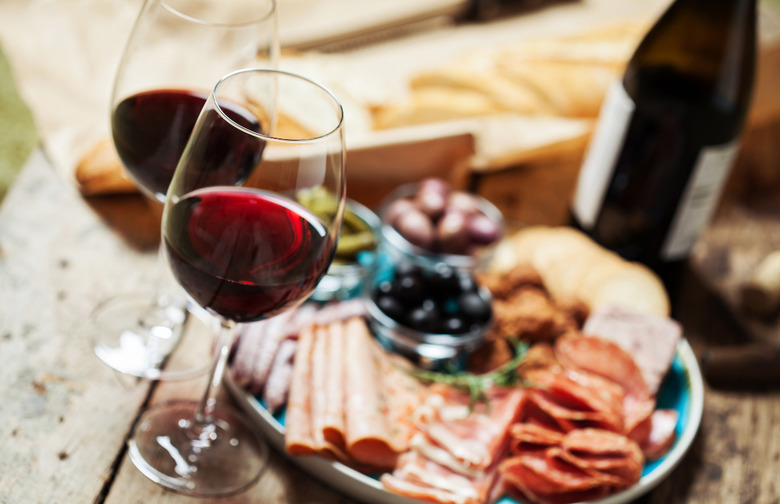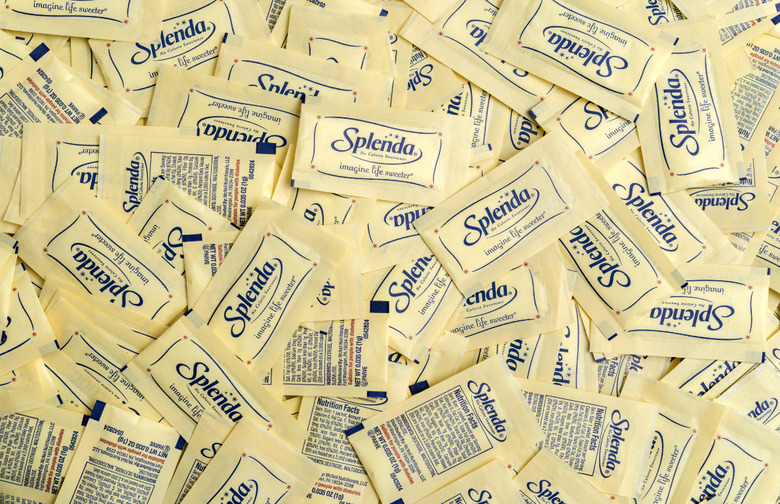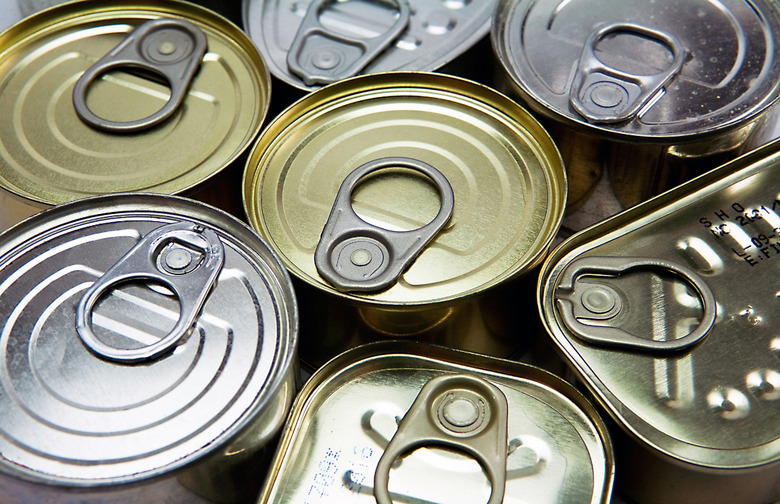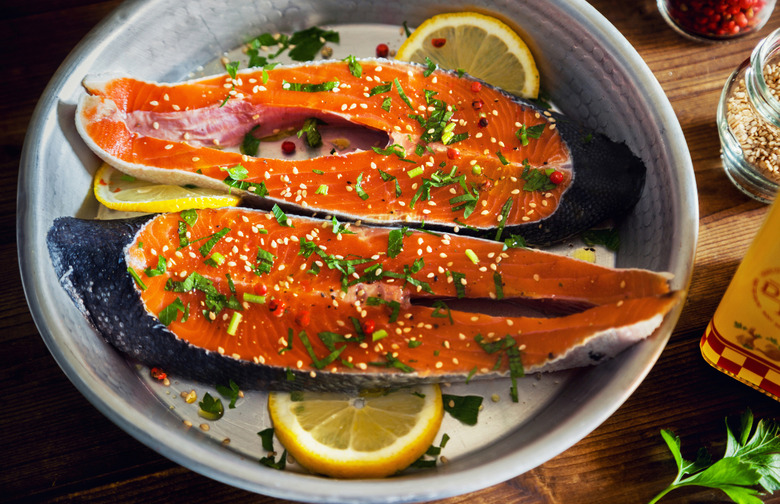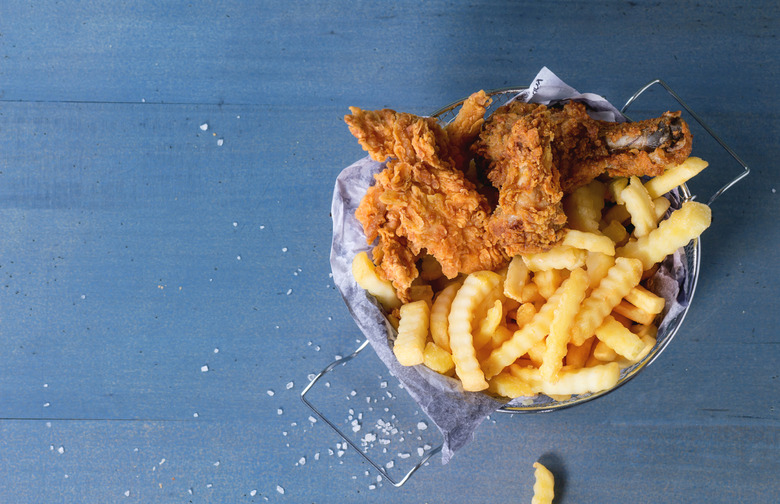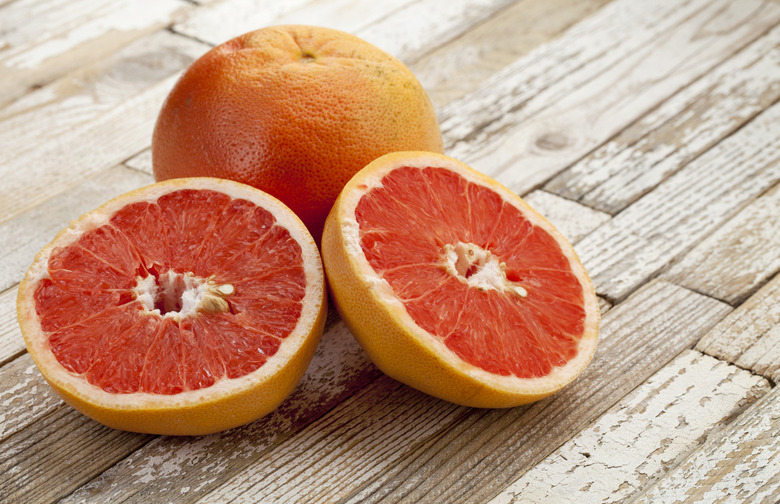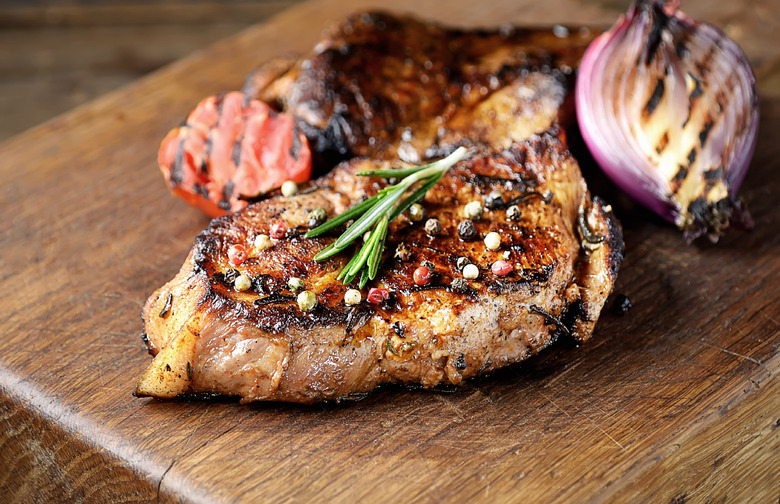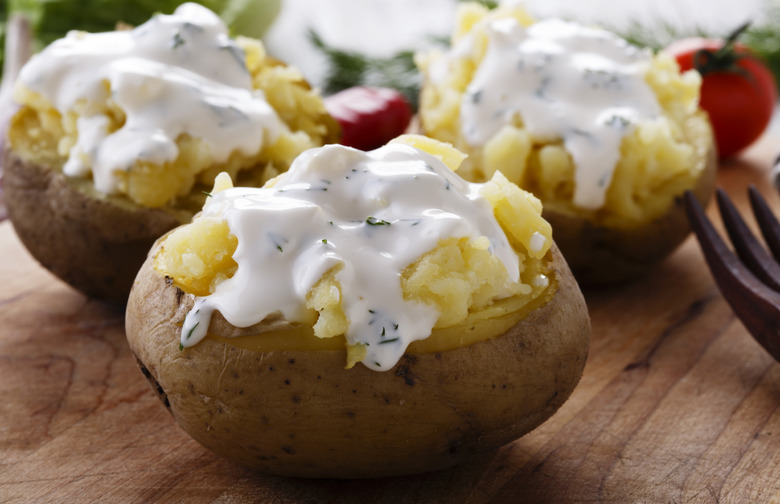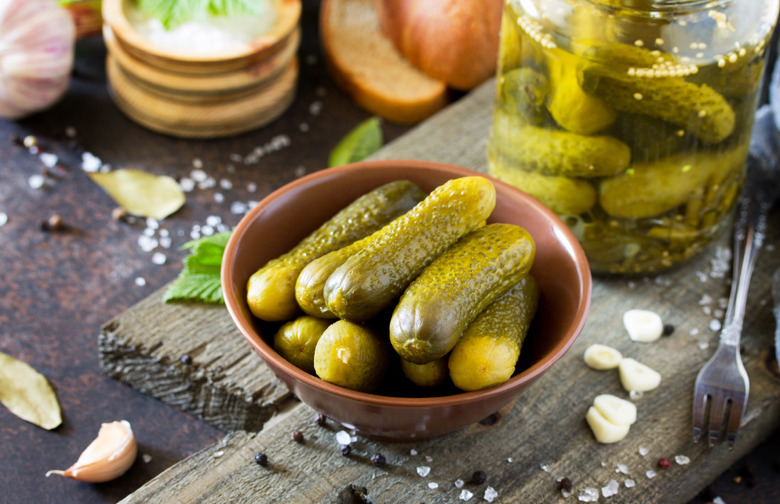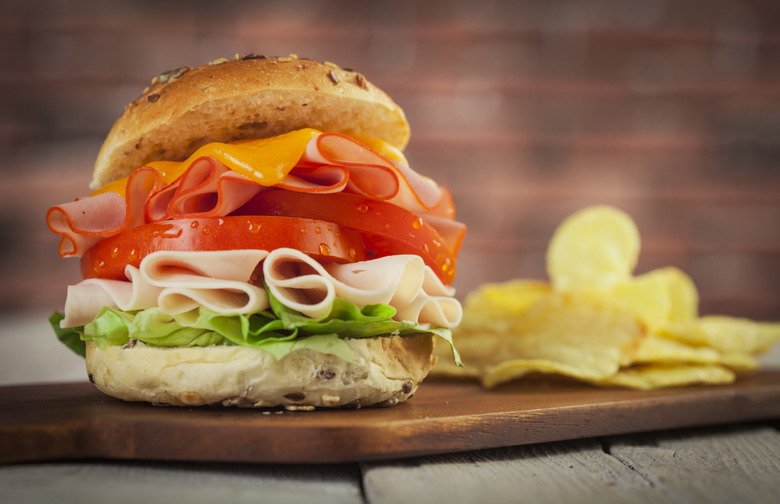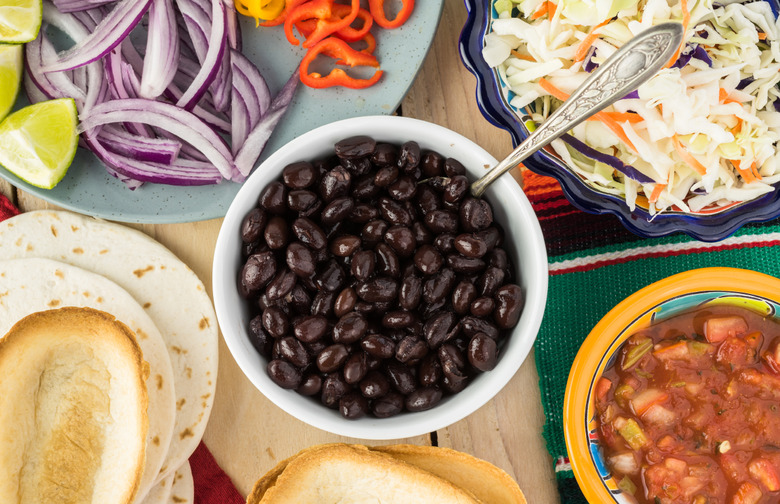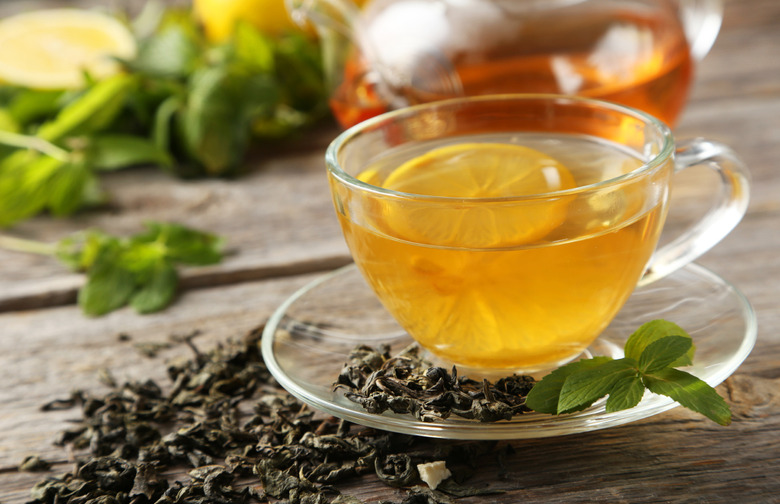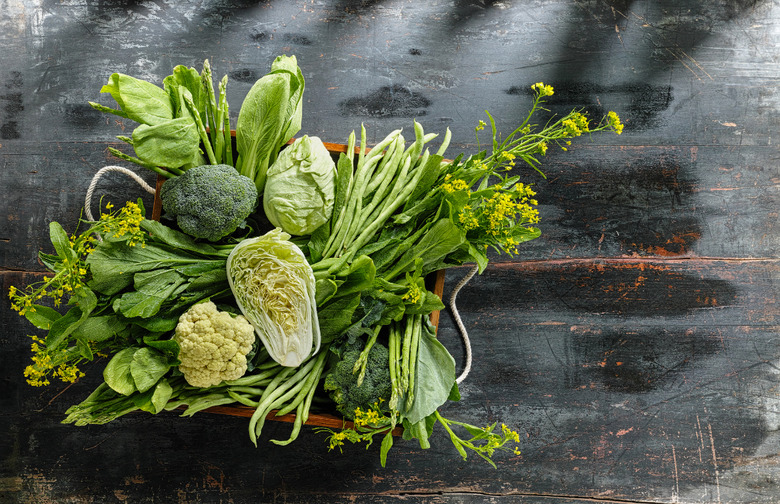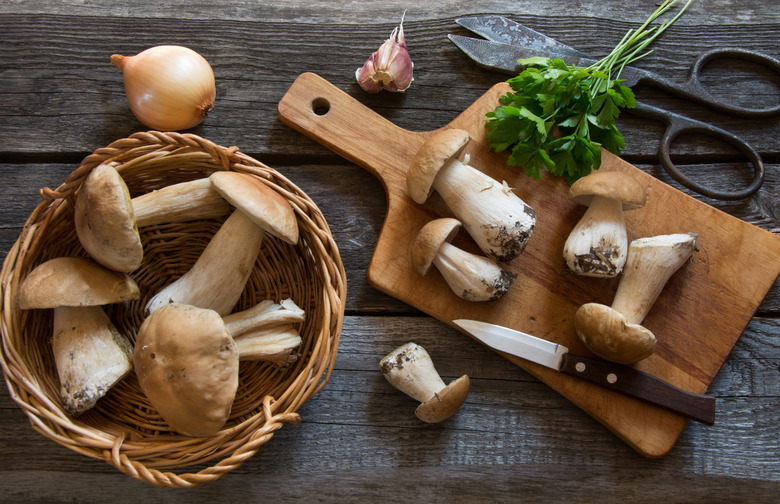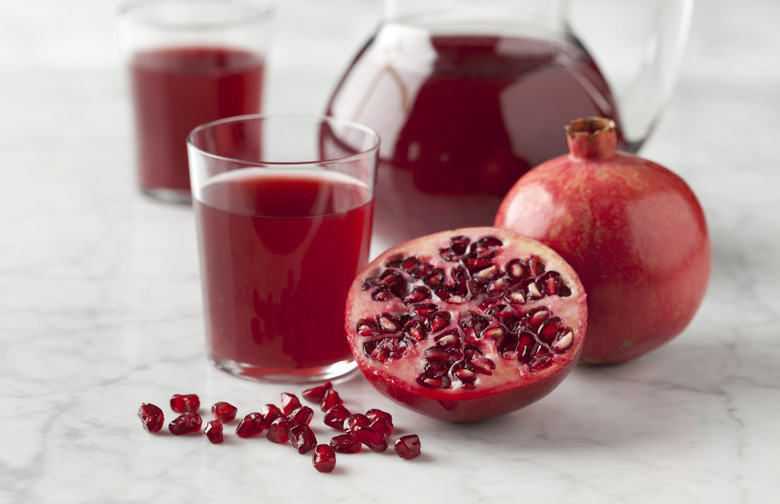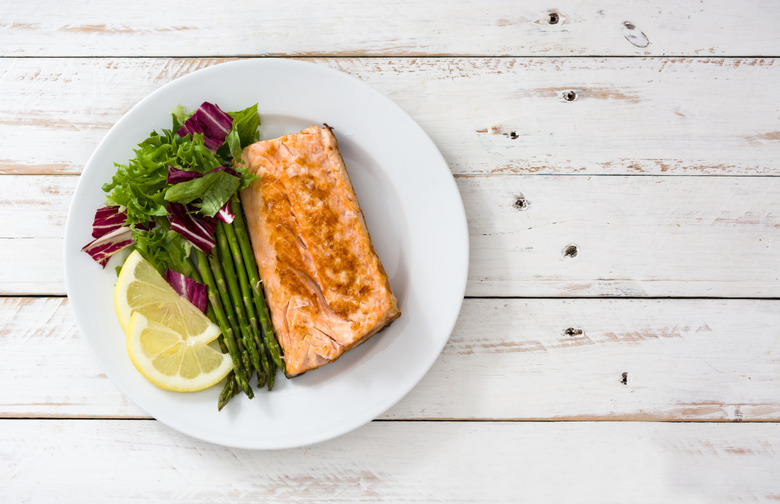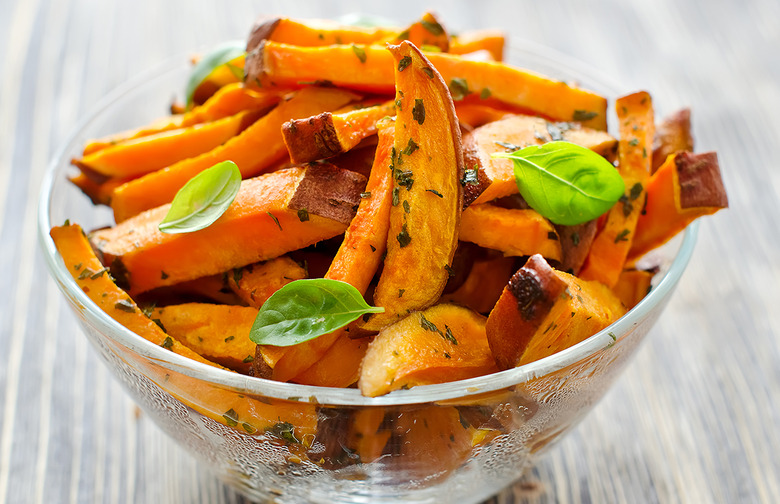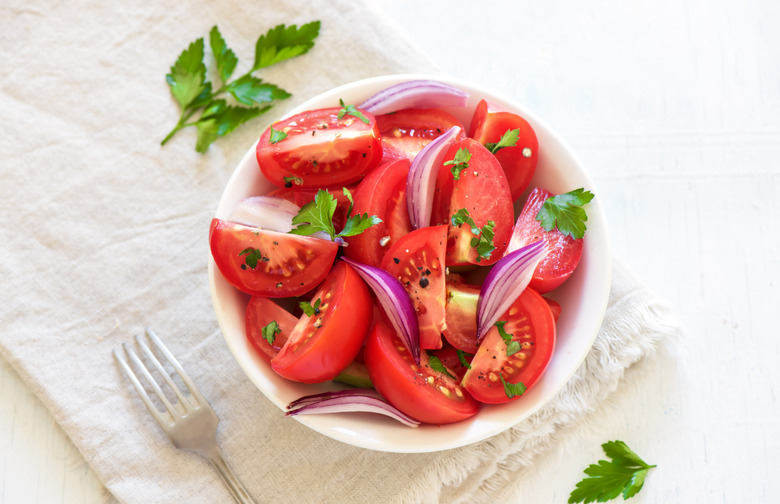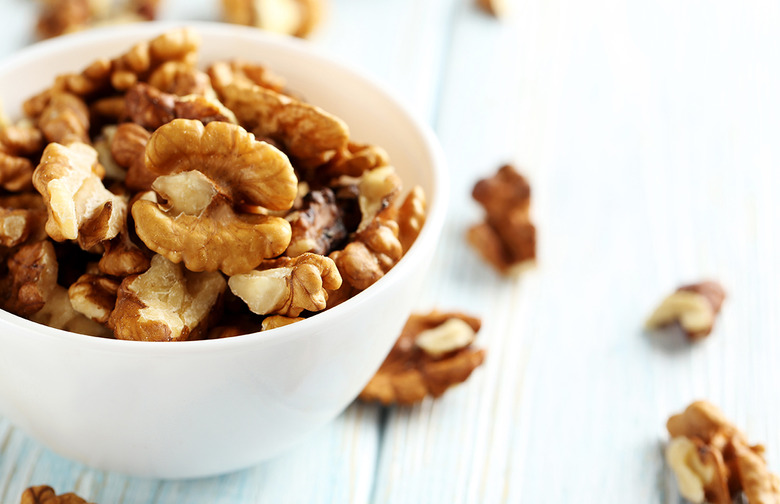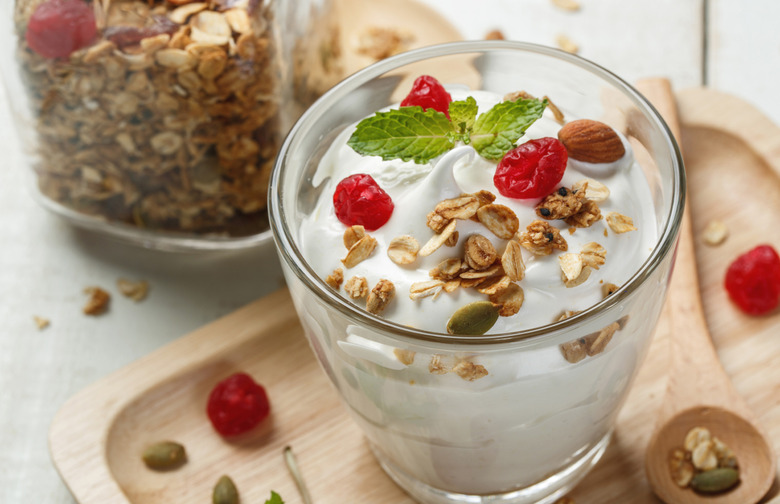10 Foods To Eat To Cut Your Breast Cancer Risk (And 10 Foods To Avoid) Gallery
One in eight women are diagnosed with breast cancer in their lifetime — and despite the vast body of research being conducted on the disease, it remains an overwhelming public health concern.
The second leading cause of death among women, breast cancer can lead to costly procedures, removal of breast tissue, irreparable damage to cells, and possibly even death. Estrogen is one of the three bodily chemicals that fuel breast cancer growth and risk — the other two being progesterone and HER2. While progesterone and HER2 aren't as concretely linked to food and diet, estrogen levels are intertwined with the food decisions we make on a day-to-day basis.
That means there is something we can do to reduce our risk — we can be mindful of risk factors in our diet. Some risk factors outside of diet are uncontrollable. Genetics, for instance, play a huge role in whether or not your risk increases. Physical activity can also mitigate risk. But here are some foods that cut your risk down and a few others that spike it up.
Avoid: Alcohol
Don't worry, you can still indulge in a wine night here and there with your girlfriends — just be mindful not to overdo it. While a glass or two of wine can actually provide a ton of health benefits, drinking in excess has been linked to increased risk of a number of different types of cancer, including breast cancer. A study published in the International Journal of Cancer study found that a woman's average risk of breast cancer increases by four percent with each additional drink per day.
Avoid: Artificial Sweeteners
The sweeteners found in diet soda, Splenda, and other zero-calorie products are linked to all kinds of health problems — including cancer. They are known for elevating your insulin levels, contributing to diabetes and breast cancer risk.
Avoid: Canned Foods
Bisphenol-A (BPA) can negatively affect many bodily systems such as the nervous and reproductive systems. It's also been linked to an increased risk of breast cancer due to the fact that it acts as a synthetic form of estrogen. To steer clear of this substance, be mindful of which water bottles you buy and make sure to limit your intake of canned foods.
Avoid: Fish Skin
It might be a delicious addition to Asian dishes, but it's really high in fat — an unfortunate reality that can, according to Breastcancer.org, contribute to dietary risk factors for breast cancer. Fish is a great source of lean protein without the skin; if you're worried about your breast cancer risk, simply buy a cut without the skin on.
Avoid: Fried Foods
Fried foods such as French fries and onion rings could still be made using dangerous trans fats. These substances are also found in margarine, palm oil, and other processed fats. The frying itself isn't the problem — so if you know the type of fat being used is trans fat-free, you're in the clear for moderate consumption.
Avoid: Grapefruit
It was hailed as a diet food during the low-fat craze of the early 2000s, but the sour snack can actually increase your risk of breast cancer significantly. One study published in the British Journal of Cancer reported that women who ate grapefruit increased their risk of the cancer by up to 30 percent. This is due to grapefruit's tendency to boost estrogen levels in the blood.
Avoid: Grilled Meat
When you grill meat, the savory cuts accumulate heterocyclic amines, or HCA, compounds which can drive certain cancers. This is particularly true in meat that's well-done and spends an extended period of time on the grill. Anything burnt or charred can contribute to cancer risk — yet another reason why you want to avoid eating too many burgers.
Avoid: High-Fat Dairy
In a study published in the Journal of the National Cancer Institute, women who ate two or more servings of high-fat dairy products such as whole milk, full-fat yogurt, or cheese were 50 percent more likely to die of breast cancer than those who did not. This might not be due to the fat in these products, but rather the estrogen — full-fat versions of dairy products tend to contain more of the hormone, which could be linked to cancer risk.
Avoid: Pickles
This food might be one of many wacky common cravings, but it's extremely high in sodium. Elevated levels of salt over an extended period of time can contribute to an increased blood pressure and risk of breast cancer. Breastcancer.org recommends limiting intake of these sodium-rich foods.
Avoid: Processed Meats
This includes hot dogs, deli meats, and other forms of processed fatty meats. Not only are these foods laden with chemicals that can affect free radicals in the body, but they also are heavy in saturated fat. While saturated fat is no longer thought to affect heart disease, it does have a correlation with breast cancer. So it's wise to stay on the safe side and not eat it to excess.
Beans
We know beans and legumes are rich in fiber and therefore great for our digestion and overall health — and now we have another reason to love them. The consumption of fiber such as that in beans contributes to a more regulated estrogen level. The effect can help stave off breast cancer and mitigate the effects if you're already afflicted.
Green Tea
While it's unclear whether green tea can reduce the risk of contracting cancer in the first place, studies do suggest that it can mitigate the growth of an existing tumor. If a tumor remains small and benign, this can significantly improve chances of recovery and survival.
Leafy Greens
Greens such as spinach and Swiss chard are rich with folate, a nutrient that's been linked to decreased risk of developing breast cancer. Folate is also valuable for its preservation of red blood cells and its importance in fetal nerve development, which is why so many prenatal vitamins include it. Other sources include avocado, okra, and other green vegetables.
Mushrooms
According to one promising study, mushrooms can help decrease your risk of breast cancer by up to 64 percent. They're a personal favorite on pizza — but if you don't enjoy it as a topping, you can also sauté them or use them in creamy pastas. Just add them in somehow. Even one serving a day can make a difference!
Pomegranates
These underrated fruits are packed with beneficial antioxidants and natural sugars. Pomegranates also contain ellagic acid, which can suppress estrogen production that contributes to cancer risk.
Salmon
Rich in omega-3 fatty acids, salmon is a healthy choice for so many reasons. Breast cancer is one of them — in a study published in the British Medical Journal researchers found that those who consumed more omega-3 fatty acids experienced a 14 percent lower risk of breast cancer.
Sweet Potatoes
The orange color of these tasty tubers comes from carotenoids, a nutrient also found in other orange vegetables such as carrots and bell peppers. Some studies have shown a decreased risk of breast cancer with an increased consumption of sweet potatoes, which also provide a hefty dose of fiber.
Tomatoes
If you're buying tomatoes, it's best to opt for fresh — the linings of cans containing tomatoes could be harboring BPA, which we warned you about earlier. These flavorful fruits contain carotenoids and lycopene, both of which can reduce the estrogen production in your body.
Walnuts
They've been rumored to curb cravings, they can prevent colon cancer, and evidently they can reduce your risk of breast cancer, too. If you're not eating this miracle nut already, it's time to start. Walnuts contain phytosterols, compounds that can help control the estrogen that contributes to breast cancer risk.
Yogurt
Dairy products, including milk, cheese, and yogurt, all contain vitamin D. This essential vitamin can help reduce risk of breast cancer and halt its progression. For a list of more foods that are full of it, click here.

